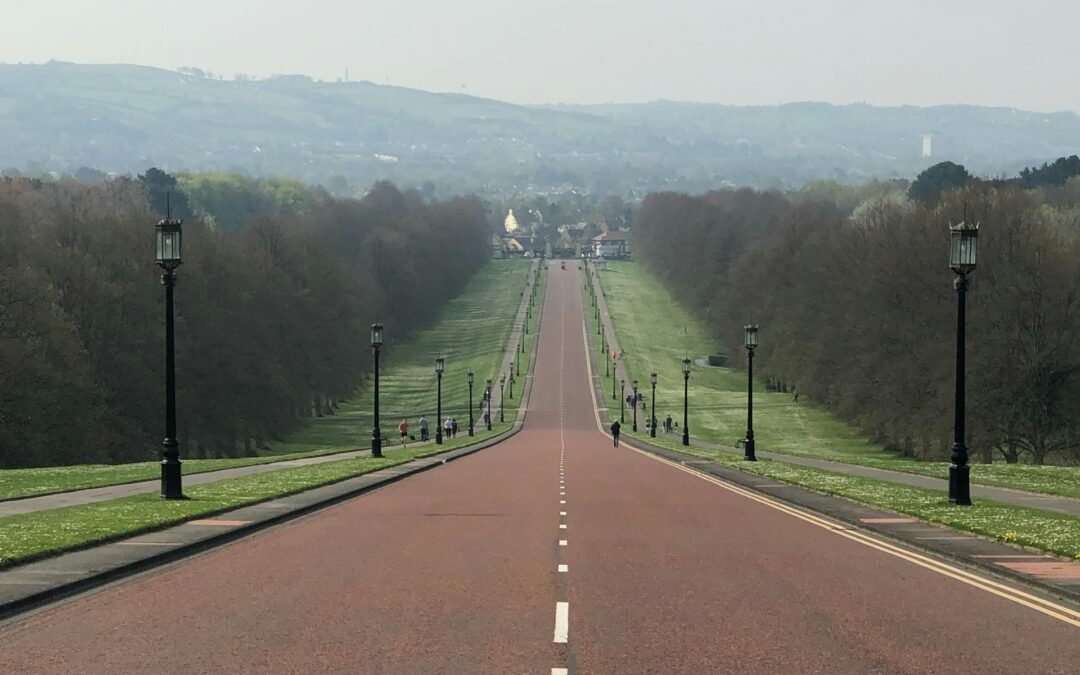As Public Policy Officer for the Evangelical Alliance (EA), I have the privilege of a wide-angled view of how churches and Christian organisations are embedded in communities, and dedicated to seeing people flourish. The latest Reimagine video series* we produced highlights some inspiring stories of Christians serving communities in practical and impactful ways. For instance, Kintsugi Hope partners with churches to provide safe spaces for people to talk about mental and emotional wellbeing, recognising the importance of holistic health. At Kilfennan Church, doors are open to welcome people from all over the world who are now making the city their home, providing a true sense of belonging and inclusion. The Boys’ Brigade in NI mobilises 2,400 volunteer leaders every week, reaching and mentoring over 11,500 children. Meanwhile, the Creation Care Group at Knock Presbyterian Church brings Christians together to lead initiatives on environmental stewardship, showing that caring for our planet is an act of faith.
It is evident that Christians in Northern Ireland are driven by more than a sense of moral responsibility; their faith propels them to dedicate time, energy, financial resources, and expertise to bring about positive change. In fact, statistics indicate that 55% of evangelical Christians volunteer in church activities each week, and 60% contribute financially to development or humanitarian projects monthly**. This active engagement reflects a strong commitment to thinking faithfully about the world around them, driven by a desire to see communities thrive.
If this is the case, why then do some Christians in Northern Ireland struggle with engaging in politics? Politics, after all, is about governing nations and setting rules and laws to ensure the wellbeing of society. If Christians are already sacrificing to serve their communities, surely it makes sense for them to invest in the policies that shape those communities and the people who make them.
Yet, many Christians feel that politics is not within the church’s remit, that their role is solely to preach and teach the gospel. However, the gospel is a call to walk in the world in a way that reflects Christ, and to see… His kingdom come and His will be done. His kingdom is a place where justice reigns, where wrongs are made right, and where we care for the most vulnerable among us. It is not a call to retreat from public life but to engage, embodying a holistic gospel influencing every part of society.
A recent E A survey across the UK*** revealed that most evangelical Christians (76%) believe Jesus would engage with politics by befriending politicians and speaking against injustice. This is a model we, as his followers, are surely called to imitate. As “salt and light” in the world, we are called to be ambassadors of change, demonstrating Jesus’ love in every sphere, including politics.
The Good News People Report** reflects this sentiment, finding that 21% of Northern Ireland’s population (around 400,000 people) identify in some way as an evangelical Christian. The research also found that 23% of the population say that they attend church weekly. If this is even close, more people attend Church in each week than attend an Irish League football matches in the entire season, underscoring the significance of faith in this place.
Additionally, two thirds agree that faith has an important role in society, which highlights that there is still a shared belief in the need for Christian values in public life.
Dr Gladys Ganiel, a professor of Sociology of Religion at Queen’s University Belfast, emphasizes this impact: “those seeking to understand Northern Ireland must not neglect the role of religion—either in politics or in everyday life.” Her words capture a truth we must consider; faith is not a separate sphere from politics but a foundational element of it.
Religion remains a central aspect of life in Northern Ireland, yet it is understandable that many of us feel frustrated by our government’s instability and discouraged by the erosion of integrity in politics. Trust in political leaders has reached an all-time low, leaving us feeling disconnected from a system that seems fractured and unpredictable. So, is it possible for us to continue engaging with politics in a spirit of faithfulness? This does not mean ignoring the challenges or placing naïve hope in imperfect institutions. Instead, it calls us to engage thoughtfully and prayerfully, striving to embody Christ’s compassion, justice, and integrity in how we approach issues. I know I have made my share of mistakes while speaking up on issues important to Christians in N I, but I am committed to showing up faithfully with courage and kindness.
Called to be “Good News People,” let us be that good news not just in our churches but in shaping a society that reflects the values we build our lives on. Here are three things we can do today to begin thinking faithfully about politics:
- Find out who your local political representatives are – Write to them – Email your local Councillor, MP, or MLA.
- Commit to praying for your local representatives, even if you disagree with them.
- Reach out to tell your representatives that you are praying for them – even invite them to church!
*Reimagine series – Evangelical Alliance NI 2023/4 Reimagine – Evangelical Alliance
**Good News People Report – Evangelical Alliance NI 2024 Good news people – Evangelical Alliance
***Thinking Faithfully About Politics Report – Evangelical Alliance UK 2024 Thinking faithfully about politics – Evangelical Alliance
Danielle McElhinney is Public Policy Officer for E A (NI). She lives on the north coast, and has three adult children.
Please note that the statements and views expressed in this article of those of the author and do not necessarily represent those of Contemporary Christianity.


This is a very interesting and informative article.
One comment: why do we have to create a ‘sub group’ by labelling some ‘evangelical Christian’s’? All who are in Christ are part of ‘one body’.